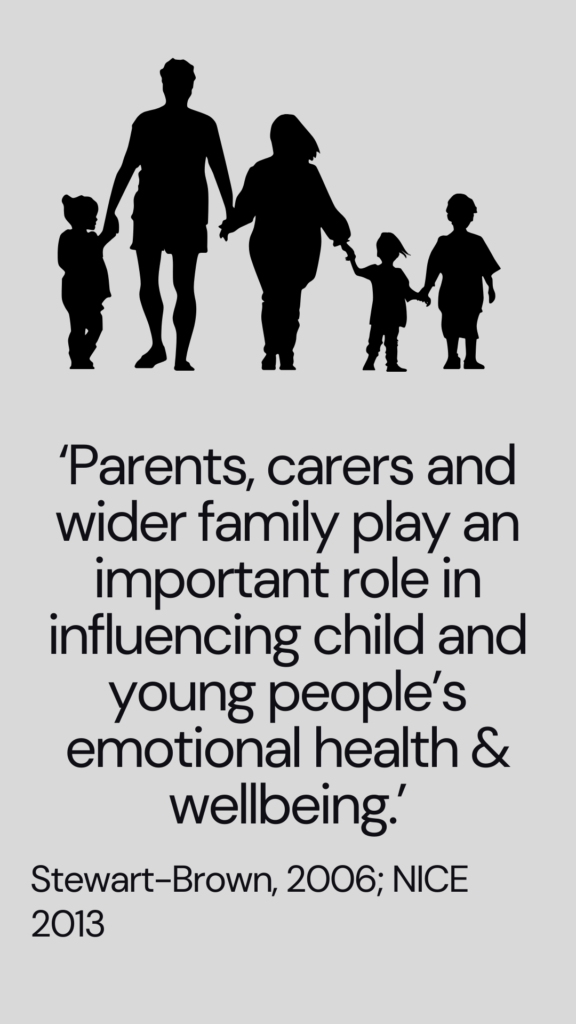
Families are the most important influence in the early years as we’ve seen through our exploration of attachment and resilience. Identifying and addressing a family’s needs can increase protective factors that positively influence a child’s wellbeing, and decrease risk factors that may be impacting a child’s life negatively. Early years professionals and practitioners can use all interactions with families as an opportunity to offer support, build resilience and identify any additional needs of both parents and other key family members to signpost or refer for additional help. Making strong relationships with families can help support transitions, deepen your understanding of a child’s needs and offer guidance to parents and caregivers.
The House Model of Parenting is a model of key parenting principles that can be supported by early years settings, specialist support services and professionals. Each aspect of this model will help to build resilience by strengthening parent-child attachment and supporting parents to consistently respond to the needs of the infant.
Image source: AFKA Cymru
Engaging Families
Every family is different so a range of techniques may be needed to engage different families. Sometimes families can be labelled as ‘hard to reach’ but perhaps it might be that new and creative approaches need to be considered to support their engagement. Taking time to build trust with a child’s family can make a huge impact on their mental health, resilience and social, emotional development.
It’s important to recognise that families from a range of cultural, racial or ethnic backgrounds might relate to and understand concepts of mental health, education, parenting and accessing support in different ways.
Watch the video below to consider how you might work to engage families from diverse cultures:
Parent Mental Health
Good parental mental health is significantly associated with good child development outcomes, particularly social, behavioural and emotional development. Currently, support for families is very fragmented across the UK and often fails to reach the very families most in need of it. Therefore, it is crucial to offer practical, non-judgemental advice, support and guidance to parents in the early years of their child’s life.
Some interventions help family members to design and implement ‘staying well’ plans. This could include:
- sign-posting to other helpful services
- setting goals
- developing problem solving skills
- offering advice on managing stress
- recognising the early signs of a relapse
(Gatsou et al, 2017).
Watch the following video which introduces one way that families can get specialist support in Greater Manchester:
To conclude, families play an essential role in the earliest years of children’s lives. With support and guidance, parents and caregivers can help children to develop physically, cognitively, socially and emotionally. If families are enabled to prioritise their children’s wellbeing during this critical period, they will provide a strong foundation for future happiness, healthiness and achievement.

Apply Your Thinking:
How does this learning around supporting families influence your ideas around how best to promote good mental health in infancy?
- How can the whole family be taken into consideration when supporting babies & children?
- Think about how parents & carers could be involved in the design and delivery of mental health provision. What could this look like? Research & reflect on how parents and caregivers could be engaged to be part of the solution






